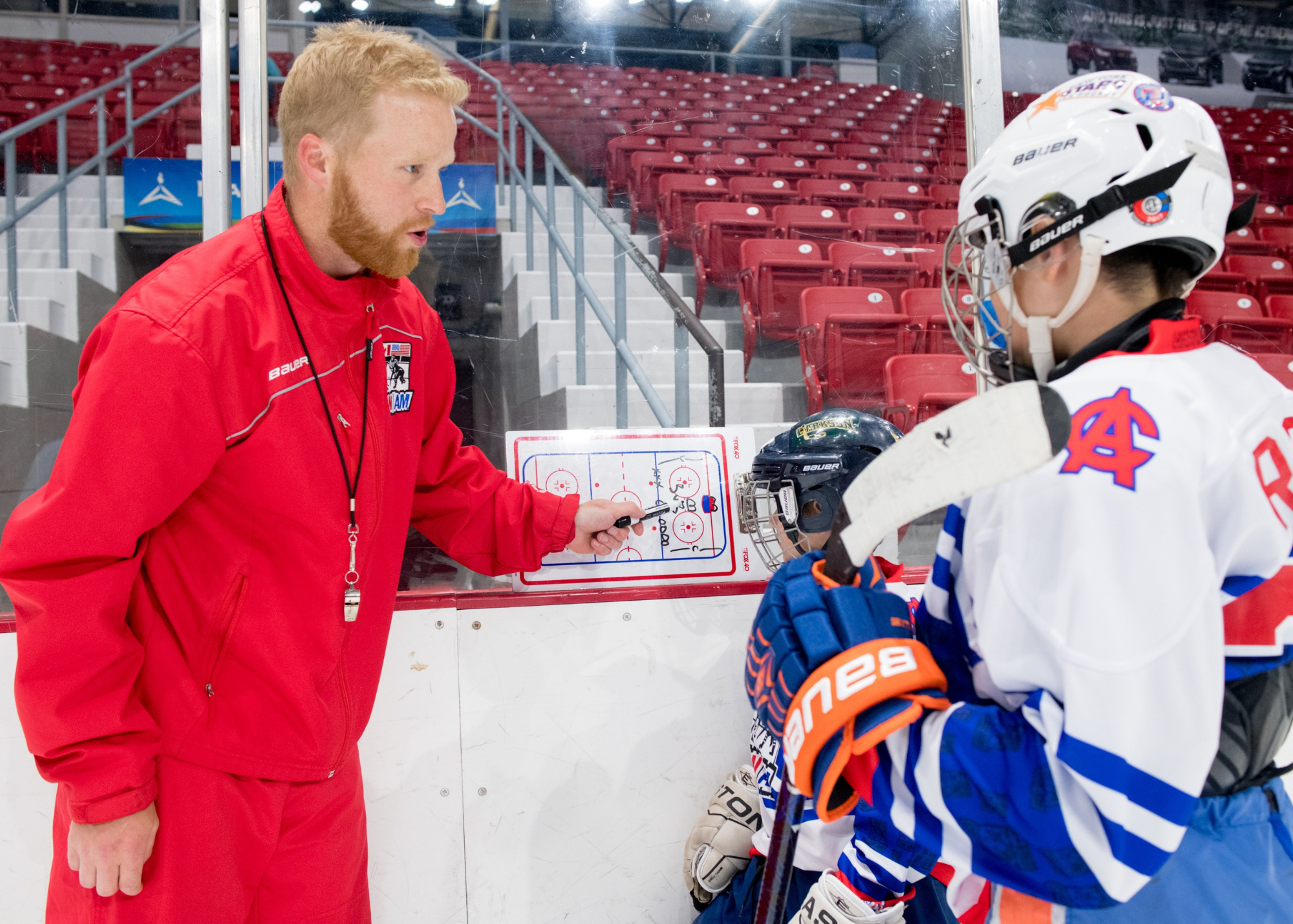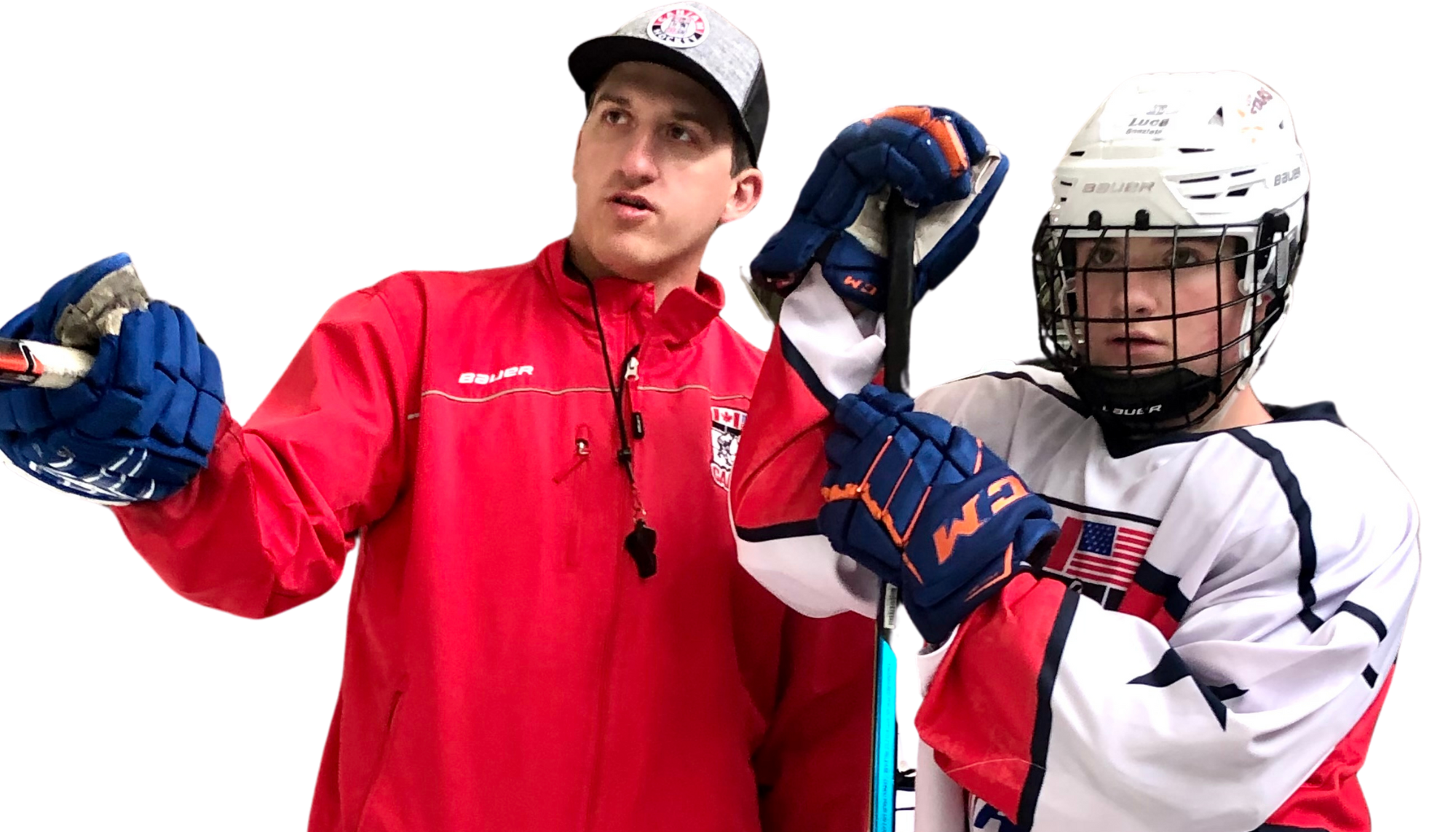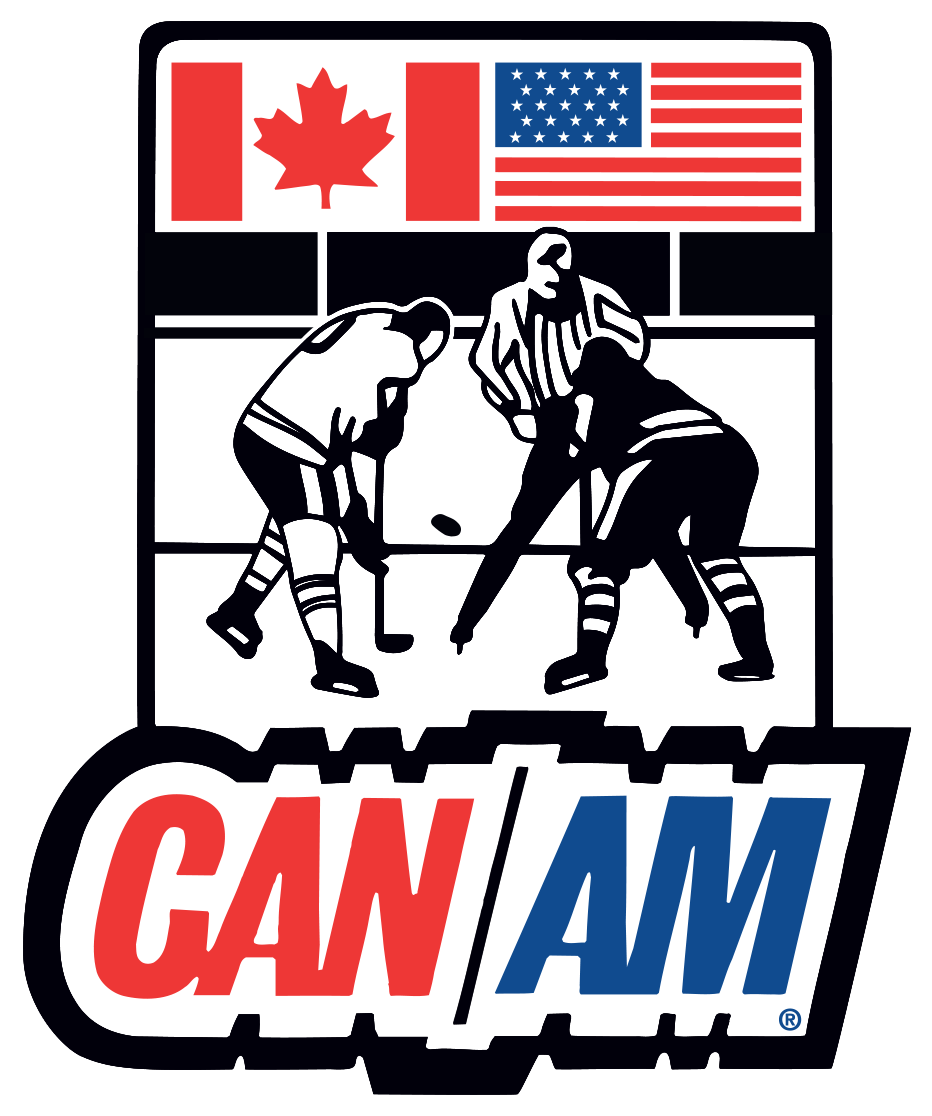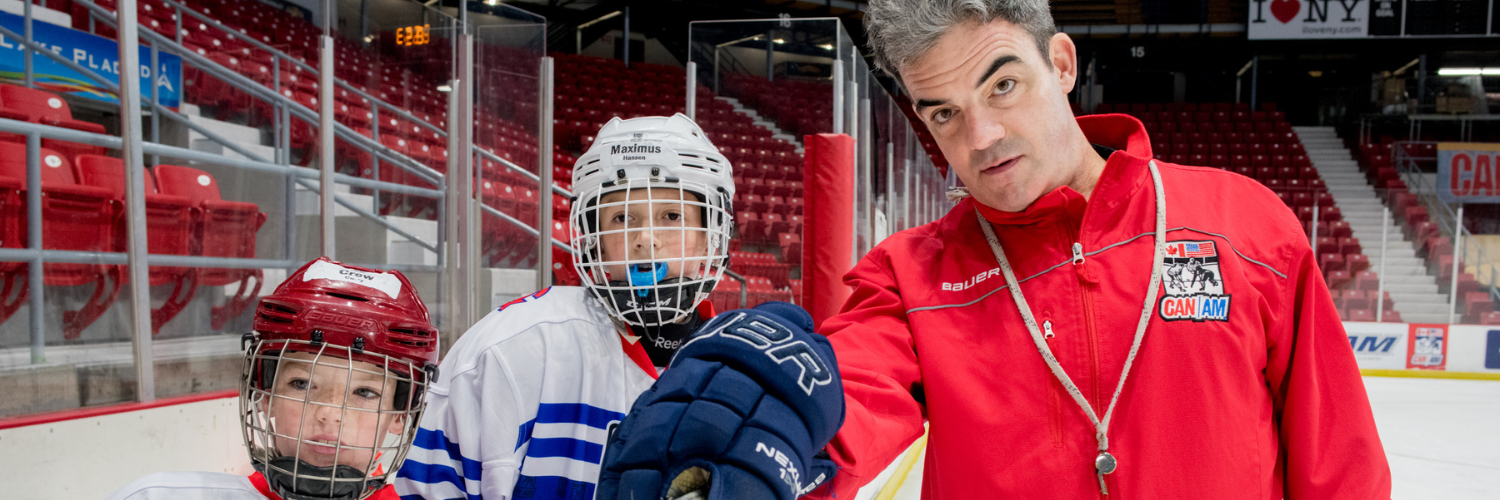Positional and Game Play
Hockey is a game of both mind and body, played as much in your head and heart as on the ice. You don’t have time to think about what to do or where to move in the heat of the moment as a play unfolds. That’s why learning to anticipate your next move, both offensively and defensively, is key. Focus on sharpening your individual skills while also developing your game strategy. The Program Highlights below will outline the skills you’ll work on, whether you’re playing forward or defense.
Register
Ages 8-17. Distinct age groupings.
- Sunday evening skate & evaluation introduces you to the CAN/AM way and gives instructors their first chance to evaluate players.
- Monday-Friday: players will have two 1 ½ hour sessions daily, each with specific skills and goals.
- Saturday session serves as a recap from the week and a chance to display enhanced skills during a final scrimmage.
- Stickhandling: Develop puckhandling skills in tight areas and in the open ice.
- Passing: Improve your awareness as to where your teammates are at all times. Learn to execute pinpoint passes both on the forehand and backhand.
- Coverage: Learn how to cover your “area” as well as your “man” in all 3 zones (defensive, neutral, offensive).
- Time and Space: Learn when to “go” and when to “slow down” with and without the puck in game situations (special teams, odd-man rushes, even strength)
- Gap Control: Forwards will learn the importance of attacking the opposing defenseman and getting them on their heels. Defensemen will learn to keep their “gap” with the attacking forward in defending the prime scoring areas on the ice.
- Improve your shooting accuracy.
- Develop a quick release.
- Increase shooting power significantly.
- Learn and re-learn when, where, and how to execute the correct shot from the best location to score.
- Execute pinpoint passes.
- Stickhandle in tight areas and in the open ice with your head up.
Personal video analysis of your individual style and skills – a CAN/AM coach gives you specific input and skill development tips using video feedback.
- Center/Winger strategy in the defensive, neutral and offensive zones, including transitional play.
- Shooting/Scoring – wrist, snap, backhand, slap shot and deking and when to use them.
- Communicating with your linemates, goaltender, and defensemen.
- Learn when and how to properly block shots.
- Puck Control – playmaking, passing, puck protection and cycling the puck.
- Specialty Team Play – powerplay, penalty killing, 4 on 4, 3 on 3, odd-man rushes.
- Daily instructional scrimmages reinforcing the role of the forward.
- Off-ice forward training.
- Playing in the defensive, neutral, and offensive zones, including transitional play.
- Gap control, body and stick and angling, and defending the net area.
- Shooting/Scoring – emphasis on shots from the point, one-timers, and shots to create deflections and rebounds.
- Communicating with your defensive partner, goaltender, and other teammates.
- Puckhandling, playmaking, passing, quarterbacking the play.
- Specialty Team Play – powerplay, penalty killing, 4 on 4, 3 on 3, odd-man rushes.
- Daily instructional scrimmages reinforcing the role of the defensemen.
- Off-ice defenseman training.
- Agility stations including ladder drills, Gorilla steps, Dot Drill mats, Power Slide boards, core strengthening via medicine balls and resistance bands, balance and flexibility training.
- Improve your shooting accuracy off-ice with the Top Shot, interactive indoor shooting gallery.
- Increase shooting power with proper technique and repetition at our outdoor shooting gallery.
- Designed to introduce and reinforce concepts used during situational and positional play on-ice. By introducing these physical elements off-ice, we can help skaters focus on the mental and physical skills involved without having to worry about on-ice distractions. This leads skaters to a much greater understanding of the skill or concept in question.
- Learning of what "TEAM" means is an important part of developing hockey players. You will learn the importance of such critical hockey team skills as desire, cooperation, trust, motivation and just plain hard work towards a common goal. This program is under the supervision of our special Team Challenge staff and instruction is geared towards safety as a priority.
- Review and critique of professional situations and breakdowns resulting in goals.
- Responsibilities of forwards & defensemen (Defensive, Neutral, and Offensive zones).
- Detailed walkthroughs for: Breakouts, attacking the zone (triangle and cycling), face off positioning, and special teams.
- Understanding different goaltending styles and taking advantage of their weaknesses.
- Understanding breakaway concepts and techniques. Know what to do when a goalie comes out from his net, how slowly or quickly to approach, what visual cues to look for and what final move to make.
- Pre-game preparation & in-game focus.
- Learning and bouncing back from a bad game.
- Hockey and higher education.
- See how you measure up against hockey players of your age.
- Although hockey, both on and off the ice, is the focus at camp, there are times set aside for recreation in order to relax, have fun and take a break from the concentrated hockey program.

Saturday marks the final day of camp, and we’ll end the week with a special session of closing remarks, awards ceremonies, and check-out. After the final ice session, the camp will end with heartfelt closing remarks from our coaches and staff, reflecting on the growth, effort, and accomplishments of each camper throughout the week. It’s a time to celebrate individual progress and the bonds created within the camp community.
Following the remarks, we’ll hold an awards ceremony to honor campers for their dedication, teamwork, and achievements on and off the ice. From skill mastery to sportsmanship, the awards will highlight the standout moments of the week, giving everyone a chance to shine and receive recognition for their hard work.
Once the ceremony concludes, we’ll move into check-out, where campers will return to Northwood School to collect their belongings and say their goodbyes. It’s the perfect time to reflect on the experience and exchange contact info with new friends made during the week. We’ll ensure a smooth check-out process, so you can leave with the satisfaction of knowing you’ve had an unforgettable time at camp.




